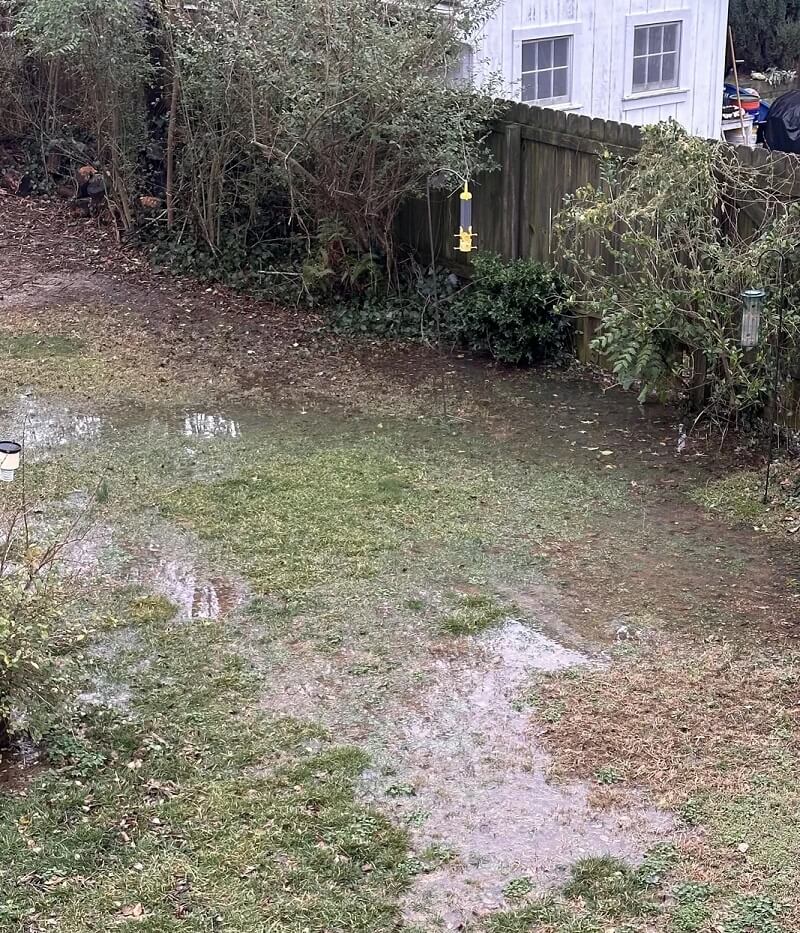A Virginia homeowner turned to r/Landscaping for help with their sloshy situation.
A photo displays a very wet backyard, apparently the aftermath of a rainstorm. Unfortunately, standing water is an ongoing problem that lasts a few days to a week after every storm.

"This has been ongoing for years according to the last owners who didn't care to solve the issue as it wasn't hurting anything," the original poster wrote in the comments.
The OP was open to any and all suggestions on how best to mitigate the water.
Many advised investing in water-loving, deep-rooted plants or building a dry well, while others suggested a clover patch or French drains.
"I'm liking the idea of a rain garden," the homeowner said.
Rain gardens are a natural, beautiful, and inexpensive way to work with rainfall instead of working against it. It's a landscape designed to capture and absorb excess rainwater using native plants that naturally thrive in their local environments and make gardeners' lives exponentially easier.
Rain gardens are more low-maintenance than digging drains or hauling loads of purchased soil into the ditch with hopes of absorption. Native landscaping is a smart method of rewilding a yard that will flourish and benefit its surroundings. From the soil to local pollinators, it's a win-win for the entire ecosystem.
Pollinators are essential to our food supply. Next time you're annoyed by a buzzing bee, remind yourself that these creatures are responsible for one out of every three bites you eat, per the USDA. Making sure bees have native plants and flowers to pollinate is crucial to our survival.
Beyond rain gardens, consider clover lawns, vegetable gardens, tapestry lawns, xeriscaping, or
buffalo grass for your antilawn venture to save money, time, and our planet. Even transforming a small portion of your yard will bring you the benefits and you can always build from there.
The flooded yard received all kinds of attention and advice, but the idea of a rain garden seemed to be the solution the OP liked best.
"A water garden would be so cool! You could even build a little bridge across it to maintain acres from one side to the other," a Redditor wrote.
"A rain garden can handle the water," another agreed.
Join our free newsletter for easy tips to save more and waste less, and don't miss this cool list of easy ways to help yourself while helping the planet.









